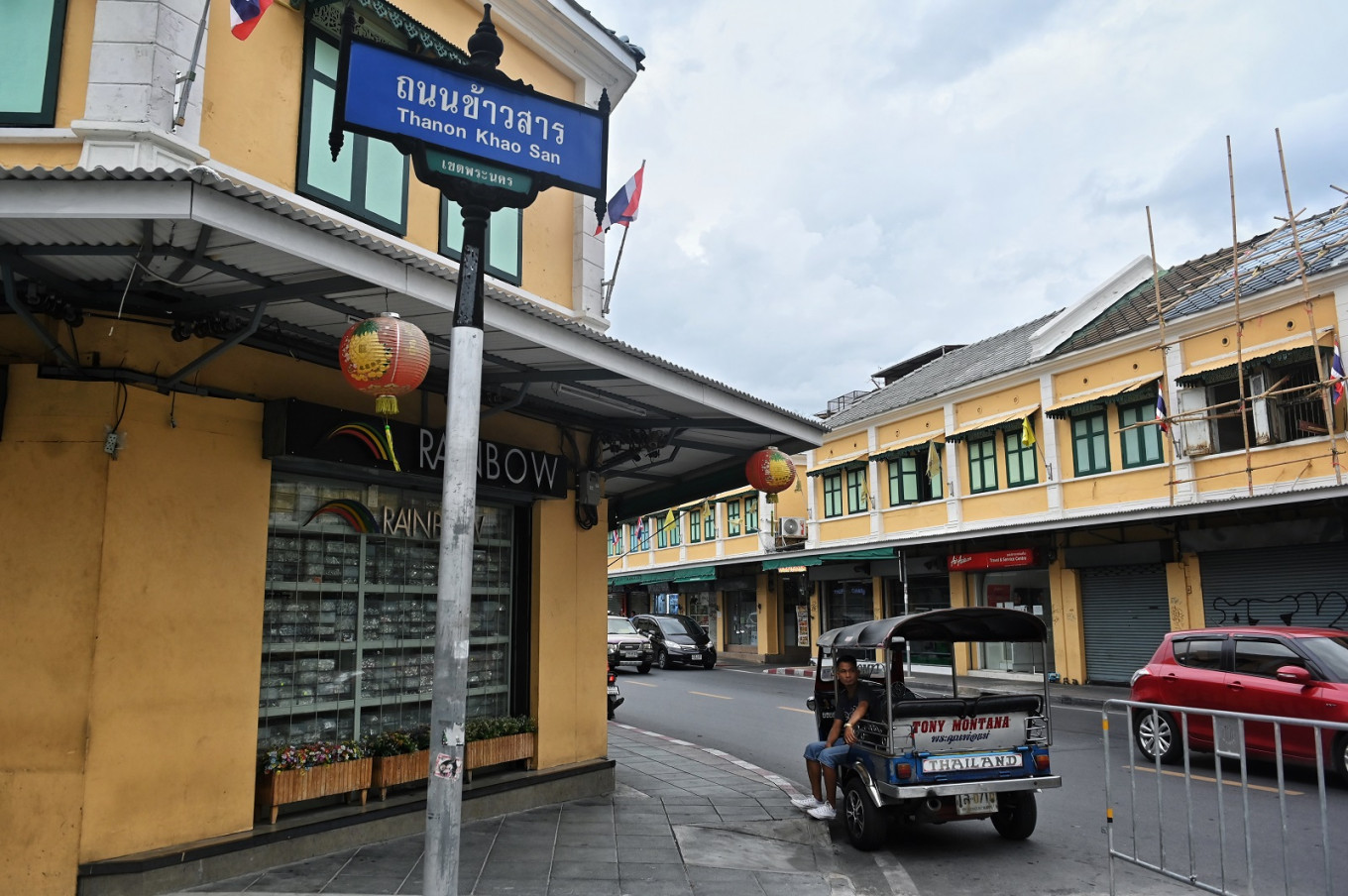Popular Reads
Top Results
Can't find what you're looking for?
View all search resultsPopular Reads
Top Results
Can't find what you're looking for?
View all search resultsDespite bans, RI urges ASEAN travel corridor
Change text size
Gift Premium Articles
to Anyone
I
ndonesia continued to push for the establishment of an ASEAN travel corridor at the region’s premier foreign policy meeting, despite having been slapped with travel bans by other countries fearing the possibility of imported cases from the archipelago.
At the ASEAN Ministerial Meeting on Wednesday, the first time the annual meeting was held completely by video-conference, Foreign Minister Retno Marsudi reiterated the need for a travel corridor arrangement, saying it would not only help in the global economic recovery but also signal ASEAN unity in responding to the pandemic.
“I spoke about how Indonesia has prepared an initial draft, which is currently being [studied] and I would like to express my appreciation for the support that has come from ASEAN member countries,” she told reporters after the meeting.
Retno acknowledged that it was not the right time to discuss the possibility of reopening tourism, but insisted it was still important to discuss the establishment of a special corridor for essential business travelers.
The idea of a travel corridor for ASEAN was first tabled by President Joko “Jokowi” Widodo in late June. The President has since bagged deals with China, South Korea and the United Arab Emirates for an arrangement to allow the movement of people for essential business purposes.
Several ASEAN counterparts backed the idea, believing the proposal would be a good start for addressing economic challenges in the region that have emerged from the COVID-19 outbreak.
With Vietnam expressing hope of leading a physical meeting for the ASEAN Summit to be held in November – its last signature event in its year-long chairmanship of the group – Retno said there were hopes that the travel corridor would be completed by then, pending consultations.
“I think almost all countries recognize the need for us to create this ASEAN travel corridor, and if we do not start the negotiations [soon], we’ll keep worrying. The important thing is we start [talks while ensuring] it will be safe,” she said.
In his speech to open Wednesday’s proceedings, Vietnamese Prime Minister Nguyen Xuan Phuc said the pandemic continued to unfold in a complex manner that affected people and businesses in the region.
“We need to promptly help our people and businesses restore production and return their lives to normal in order to speed up economic recovery,” he said.
The economic fallout from the lockdown and restriction measures caused by the COVID-19 pandemic has exacerbated the underlying challenges that countries in the region already faced, including deepening inequality, shortfalls in governance and weak health systems. The continued rise of infections in some countries has also led to others taking precautions such as closing off borders.
Retno said that in responding to the pandemic’s health and economic impacts, ASEAN must continue to strengthen regional cooperation.
“I asked [the other members] whether we would deal with it together or if we’d prioritize our own self-interests. I said that if we want to walk fast, walk alone; if we want to walk far then we need to walk together and Indonesia chooses to walk together with other ASEAN countries,” she said.
She also said that in this difficult situation, it was important that ASEAN countries continued to coordinate and communicate about any policy decisions.
“Don’t let any policies surprise other countries, because it may damage the trust [...] and cooperation that ASEAN has built up for a long time,” the minister said.
Retno’s comments came about a week after she summoned the Malaysian ambassador in Jakarta to grill him about the neighbor’s entry ban on foreign citizens including Indonesians.
Ibrahim Al Muttaqi, the head of the ASEAN studies program at The Habibie Center, said that Malaysia’s policy was completely understandable, especially since it was not alone in imposing travel restrictions on Indonesians.
A few dozen countries are known to have imposed similar bans on travelers from Indonesia, local reports have quoted officials as saying.
“As long as the reasons are supported by data and are well-communicated, it is something that Indonesia will just have to accept – it shouldn’t be a reason to disrupt ASEAN unity,” he told The Jakarta Post on Wednesday. “Hopefully it will serve as an incentive for the Indonesian government to get a grip on the pandemic.”
A special arrangement for essential business travelers may still be an acceptable compromise for other ASEAN member states, Ibrahim said, but they may seek ways to ensure they get a say in how to implement the rules.
“At most, they might reach a consensus that commits ASEAN countries to a regional travel corridor but without going into the details about the practical implementations,” he said.
Aaron Connelly, a research fellow at the International Institute for Strategic Studies, said that most governments were going to look at the others’ track records on the COVID-19 response.
“Indonesia’s response to the pandemic has been of a very different character than the response of most other ASEAN member states, and this may make it more difficult for Indonesia’s proposal to receive a favorable hearing,” he said.
At the ministerial meeting, Indonesia also talked about the importance of helping each other in vaccine needs and long-term regional health resilience.










